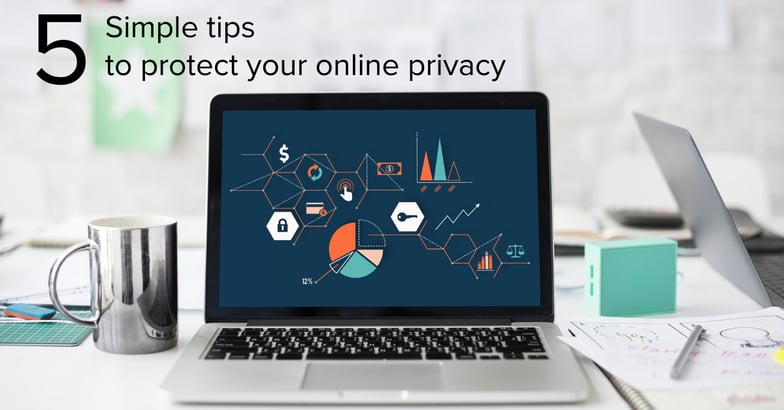In this blog post, we will take you through a series of simple steps for protecting your data and privacy online so you can safely surf the web without putting your personal information at risk.

1. Use password-protection for everything
While it can be frustrating to remember complicated passwords for all your devices and accounts, your login credentials can play a significant role in keeping your personal information from getting into the wrong hands. For this reason, it is important to create strong passwords for everything including your laptop, smartphone, tablet, as well as all your online accounts. For a long time, we have been led to believe that the best passwords are a combination of upper- and lower-case letters, numbers and symbols which cannot be linked to your identity. However, research seems to suggest that it may in fact be more effective to use long passphrases instead. Additionally, it is advisable to use the 2-factor authentication feature for extra protection wherever you can.
2. Update your browser settings
The settings in your browser can help you customise your browsing experience to a great extent. To keep your browsing habits private, you can turn off third-party cookies in your browser’s advanced settings. Alternatively, it is also recommended to clear your web cookies frequently or browse in Incognito mode to ensure that none of your information is saved by your browser. If you are within the EU, you can also verify and manage your cookie settings at youronlinechoices.eu.
3. Update your software
Every device you use, be it a laptop, a smart phone, a tablet or any other device that connects to the internet, uses software designed to be secure. However, the world of security is ever-changing, and vulnerabilities in software are continuously being discovered and exploited. These vulnerabilities are like wounds that are patched with updates to the software. Make sure that whenever your system prompts you to install an update, you do so. It could be the single most crucial step in preventing a security and privacy breach.
4. Use trusted WiFi connections
It is a regular habit for many of us to connect to the free WiFi at our favourite café or mall, at the airport in a foreign location, or on public transport. While it may be difficult to avoid connecting to public WiFi networks all together, it is advisable to use such networks with extra caution. For instance, you can use a VPN or browse in Incognito mode to ensure that your private information remains safe. It is also recommended to avoid using public WiFi networks for engaging in sensitive activities such as online banking.
5. Secure your social media accounts
Social media platforms such as Facebook, Instagram and Twitter have become an integral part of our online experience. While social networking sites provide countless opportunities to connect with friends and family, they often contain a lot of personal information including our interests, preferences, location and much more. Therefore, it is important to secure your social media use by updating your privacy settings and limiting the amount of sensitive data you share. Also make sure that you use different passwords for all your social media accounts instead of a single one.

SHARE